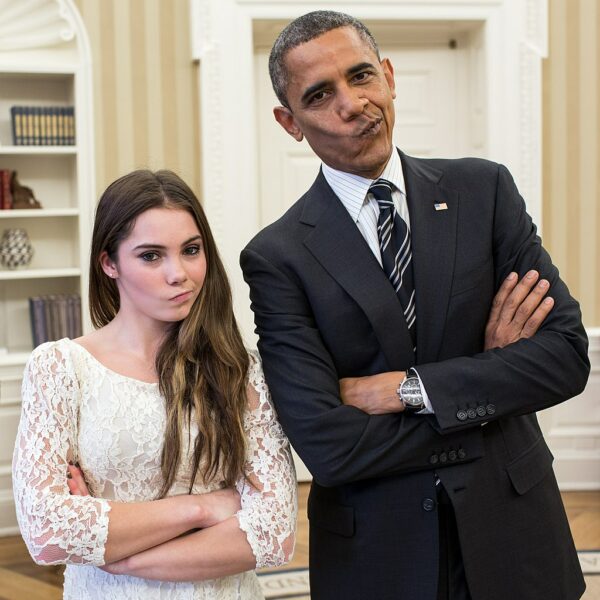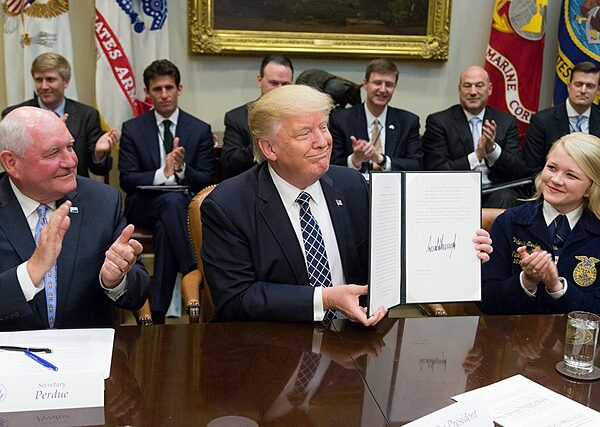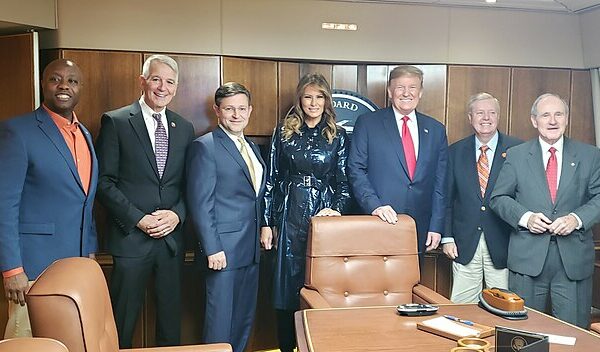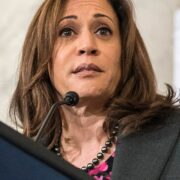
Donald Trump has broken the spirit of another Hollywood liberal. Eva Longoria, actress and former “Desperate Housewives” star, has announced her decision to move out of the United States following the recent presidential election.
Longoria, who has been vocal about her support for Kamala Harris during the 2024 campaign, shared her concerns for the country’s future in a recent interview with Marie Claire, where she discussed her reasons for relocating.
USA Today explained:
Longoria said she splits her time primarily between Spain and Mexico, and though she made the decision prior to the contentious election cycle, the outcome solidifies her choice and contributes to her “anxiety” for those still living in America.
“I’m privileged,” the actress told Marie Claire, “I get to escape and go somewhere. Most Americans aren’t so lucky. They’re going to be stuck in this dystopian country, and my anxiety and sadness is for them.”
The actress and director’s husband, José Bastón, and their son Santiago, 6, have joined her in the move.
“It just feels like this chapter in my life is done now,” she said, citing taxes and homelessness as some of the reasons she doesn’t miss primarily living and filming in Los Angeles.
When the newspaper reached out for more comment, Langoria doubled down on her feeling that America’s best days were behind her. She remembered her feelings about Trump winning.
“I’ve never been depressed in my life,” she told USA Today. “It was like, ‘Does my vote really matter? Am I really making a difference?’ I was so untethered to the core of what I believe because I truly believed in my soul that the best person wins. And then that happened, and I was like, ‘Oh, wait. The best person doesn’t win.'”
Longoria was seen in New York just days before the election, where she voiced her concerns about the country’s direction, noted The Daily Caller. “The vibe was different even before the pandemic,” she said, adding that COVID-19 and the subsequent shifts in American society played a significant role in her decision to leave.
Longoria’s retreat from the United States comes as a slight surprise. In 2020, the actress was labeled a “political power broker” by The Washington Post.
At the time, the newspaper reported that “Eva Longoria kicked off not one but two national political conventions this year — a feat that was unintentional, in part. She hosted the Democratic National Convention’s first night and became a talking point in one of the opening speeches of the Republican National Convention a week later.
Within the first half-hour of the GOP convention, the Republican National Committee chairwoman scoffed at the Democrats’ decision to have Longoria, “a famous Hollywood actress who played a housewife on TV,” emcee one of its biggest nights. But the criticism fell flat, not least because the actress also spoke at the Democratic conventions in 2016 and 2012. If anything, the swipe conveyed the power Longoria has attained after more than a decade in the political advocacy space.
In the years following her breakout, Longoria, 45, has emerged as a fierce and productive advocate for women and Latinos. There is a clear line from her journey in Hollywood — from acting to producing and directing — to the advocacy efforts that have put her on three consecutive Democratic National Convention stages. Amid a pivotal election year and a pandemic that has disproportionately affected Latinos and other people of color, Longoria has amplified her efforts, mobilizing voters and co-founding organizations that seek to effect systemic change.
Latinas, Longoria says, are ‘one of the most powerful groups that this country has.’ Last month, she announced the creation of She Se Puede, a digital lifestyle community she launched with actress America Ferrera and other Latina activists. The nonprofit initiative’s name is a play on the slogan coined by famed activist and labor leader Dolores Huerta, who Longoria says has been a mentor to her since her pre-fame days.
‘There are so many studies that showed we don’t even know we have buying power, political power,’ Longoria says. ‘We’re trying to make sure that Latinas know that they have this power.'”
Her “power moves” failed miserably in 2024. Trump, noted Reuters, “reshaped the U.S. electorate once again this year, piling up support among Hispanic voters, young people, and Americans without college degrees — and winning more votes in nearly all of the country as he reclaimed the presidency.
The starkest increase may have been the 14-percentage-point swing in Trump’s share of Hispanic voters, according to an exit poll conducted by Edison Research. Some 46% of self-identified Hispanic voters picked Trump, up from 32% in the 2020 election when Trump lost to Democrat Joe Biden.
Hispanics have largely favored Democrats for decades, but Trump’s share this year was the highest for a Republican presidential candidate in exit polls going back to the 1970s, and just higher than the 44% share won by Republican George W. Bush in 2004, according to data compiled by the American Enterprise Institute, a conservative think tank.
In counties where more than 20% of voting-age Americans were Hispanic, Trump’s margin over Democratic Vice President Kamala Harris improved by 13 points relative to his 2020 performance against Biden.”
[Read More: Kamala Caught In ‘Bribe’ Scandal]











